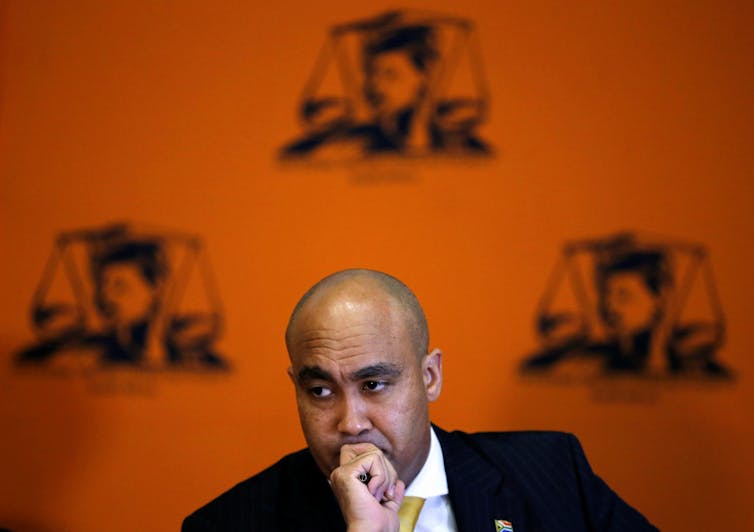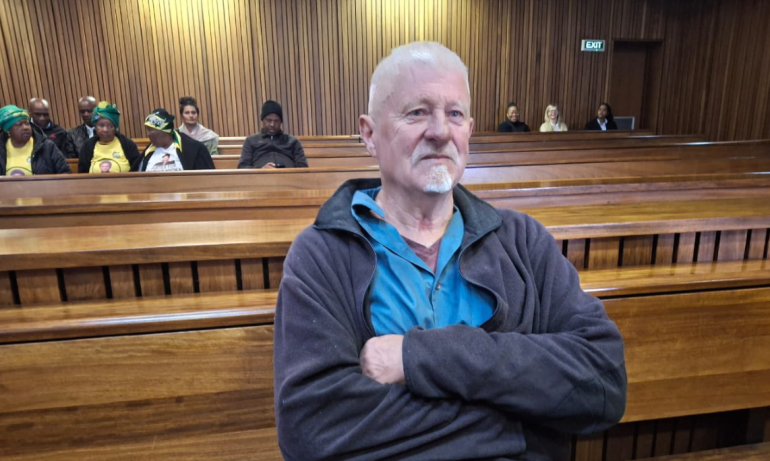Why it’s taken so long to prosecute state capture cases in South Africa

Reuters/Siphiwe Sibeko
Penelope Andrews, University of Cape Town
The Asset Forfeiture Unit of South Africa’s National Prosecuting Authority (NPA) has confirmed that it is probing seven cases related to what has come to be known as “state capture”, involving R50 billion. This development follows months of public frustration due to lack of action by the country’s law enforcement agencies despite mounting evidence pointing to massive corruption. Politics and society editor Thabo Leshilo spoke to legal expert, Professor Penelope Andrews.
What does the NPA’s decision tell us about South Africa’s prosecutorial capabilities and resolve?
The failure of the NPA to act swiftly and vigorously against those involved in state capture shows that there has been a dereliction of duty.
The NPA has the capability and could muster the resolve to pursue prosecutions according to its constitutional mandate: without fear, favour or prejudice. So its decision to act now says little about its capabilities but more about its autonomy and independence.
The latest developments highlight the challenges around the appointment of National Director of Public Prosecutions. From all accounts, the incumbent Shaun Abrahams is deeply compromised. His loyalty to President Jacob Zuma, who appointed him, means that he is caught in a professional malaise and inertia.
The president has the right to appoint the head of the NPA as set out under South Africa’s Constitution. There is unlikely to be a conflict of interest if a strong independent individual is chosen. But when a weak individual – someone who is chosen for reasons other than their legal talent and skill – is put in the post, the chances are that they will fail to act decisively against their line managers. The result will be the situation South Africa finds itself in now.
Why did it take so long for any action to be taken?
There are several possible explanations that the NPA could offer for the delay.
Firstly, they could argue that it takes time for evidence to be gathered to build a solid case.
Secondly, South Africa’s political climate, particularly in the last two years, has not been conducive to pursue those involved in allegations of state capture. This seems to have changed with a new president, Cyril Ramaphosa, at the helm of the governing African National Congress.
The third possibility is that the NPA has finally decided to act because it didn’t have a choice. Of all the institutions involved in discussions about state capture, the NPA’s silence has been the most noticeable. It finally got to the point where it had nowhere to hide and was forced to act.
The last possibility is that the NPA has been spurred on by developments in the British Parliament where Lord Peter Hain called on UK regulatory bodies to investigate some British companies mentioned in the Gupta e-mails. These actions stand in direct contrast to the inaction of the NPA, an embarrassment, thereby forcing it to proceed.
Should South Africans be concerned about the rule of law?
The NPA and the police have not promoted and protected the rule of law as well as they could have. But the country’s judiciary has been a ray of light.
Except for a few lapses, the judiciary has consistently tried to strengthen the foundations and safeguard South Africa’s very fragile democracy since 1994. This has been despite many attacks – direct and indirect.
Several judgments show this. One was the case of Johannesburg businessman Hugh Glenister who took then Police Minister Nathi Nhleko and the Director of Public Prosecutions to court to force them to prosecute police officers involved in a crime. Another was the Nkandla case which involved the use of public money on President Jacob Zuma’s private homestead. The Constitutional Court found that Zuma had failed to uphold the rule of law.
The unique feature of the South African Constitution is that judges are the final arbiters over the exercise of all public power. This is a welcome departure from the apartheid era, where parliament was sovereign and judges had no authority to review or overturn parliamentary actions, no matter the lack of morality or justice. In short, public power under apartheid was not subject to review by the courts.
Through their creative and courageous decision-making the post-1994 judiciary, especially the Constitutional Court, has demonstrated the textbook example of an effective separation of powers doctrine in a democracy.
Why is it hard to prosecute corruption and commercial crimes?
It is probably harder to prosecute corruption because it invariably involves subterfuge and deception to create the web of relationships. These relationships are often challenging to unpack.
And the levels of complexity in certain kinds of commercial cases – sometimes involving layers of complicated financial and other documents – make them harder to prosecute.
Yet the NPA has in the past two decades succeeded in a few prosecutions for corruption, including that of Schabir Shaik, Zuma’s then financial benefactor.
Its challenge is resources. Its a David versus Goliath situation if you compare the expertise in the NPA’s ranks with the resources that white collar criminals have at their disposal. This is true even though the NPA has expertise in its senior ranks.
In addition, in most cases South Africa’s top legal minds provide expertise, at very high rates, to white collar criminals.
There is nothing that prevents the NPA from employing outside expertise to prosecute complex cases, as it did in its case against tax dodger David Cunningham King.
To prevail in the pending state capture prosecutions, the NPA should look beyond its in-house expertise and gather the best talent in the legal profession.![]()
Penelope Andrews, Dean of Law and Professor, University of Cape Town
This article is republished from The Conversation under a Creative Commons license. Read the original article.
Written by: Zuko
Similar posts
MORE ARTICLES

‘You are my heart in human form’: Lungile Thabethe’s touching letter to her daughter

Smart tax moves: A guide to boosting your tax refund

‘My husband won’t back me up when I discipline his kids’ – The Blind Spot

Kai Cenat graces the cover of Time Magazine’s first-ever TIME100 Creators List

Tebogo Thobejane pens emotional tribute to son on his 18th birthday
QUICK LINKS
UpComing Shows

959 Music Weekdays
Kaya 959 Hits
Real. Familiar. Memorable. Kaya 959 brings you the music you know and love from our playlist. Uninterrupted. Thursdays 20h00 to 21h00
close
The Best T in the City
With T Bose
He has held it down in the world of mid-morning radio with the best music, riveting topics, brilliant mixes and interesting guests. Every weekday, The Best T proves why he is the BEST by connecting to you like only your bro or favourite uncle could. He lets his listeners dictate the songs they want to hear in the ever-popular Top 10 at 10, and his Three Teaspoons never run out. Catch The Best T in the City Mondays to Fridays from 09h00 to 12h00.
close
Feel Good
With Andy Maqondwana
Feel good about feeling good! That's exactly what The Feel-Good show is about. An escape from the negativity that surrounds us, indulging you in good feels. Pass it on to one and all. Spread the good feeling around Gauteng with Andy Maqondwana.
close
The Hive
With Bonolo "Bee Sting" Molosiwa
Every "Hive" needs a Queen B and Bonolo "Bee Sting" Molosiwa is Kaya 959's honey who brings in the money. With her bubbly personality, infectious laugh, Bee Sting radiates positive energy which is all you need to get your weekend off to the best start. Don't miss the Afrobeat Dancehall Ragga (ADR) Top 10 on The Hive with Bee Sting every Saturday from 18h00 - 21h00.
closeConnect with Kaya 959
DownLoad Our Mobile App
© 2025 Kaya 959 | On The Street On The Air










